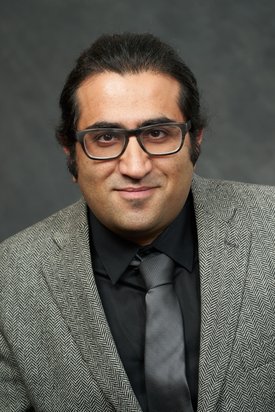
Davoud Mozhdehi
DEPARTMENTS
- Chemistry
AFFILIATIONS
- Biochemistry
Associate Professor
CONTACT
-
4-010 Center for Science and Technology
Email: dmozhdeh@syr.eduOffice: 315.443.3105
Entries in the areas listed below (other than biography and books) are selections delimited to the last five years. Consult the faculty member’s biography, listed website(s) or CV for additional information.
